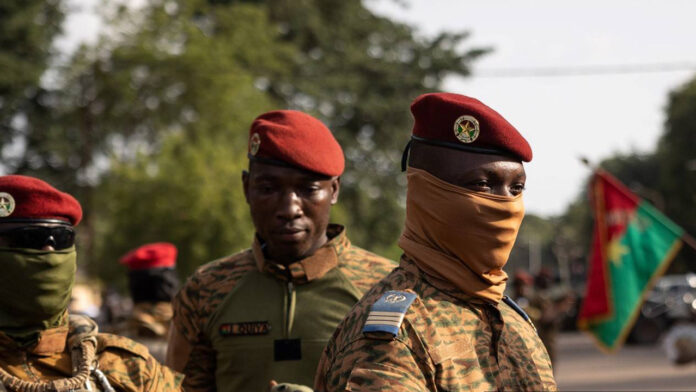Armed jihadist groups are holding at least 46 locations across Burkina Faso under siege in July, preventing access to food and drinking water and abducting women, Amnesty International said Thursday.
Amnesty said the tactic had increasingly been used since last year by the armed groups affiliated to Al-Qaeda and the Islamic State group.
Armed groups prevent the besieged populations from getting access to “food, drinkable water and health –- forcing people to displace”, the rights group said in a report.
Checkpoints are set up on main exit routes, improvised explosive devices (IEDs) laid to limit traffic and occasional attacks carried out against civilians, soldiers and supply convoys, it added.
“Amnesty International collected information on cases of abductions of women by armed groups in the context of besieged localities,” the report said.
It said the cities, towns and villages were spread across the West African country but that the northern Sahel and western Boucle du Mouhoun regions were particularly affected.
It defined a locality under siege as having the army and/or Volunteers for the Defence of the Fatherland (VDP), a civilian force that supports the military, present — but where armed groups prohibit or restrict free access by people, goods and services.
Burkina Faso saw Islamists sweep in from Mali in 2015.
More than 17,000 people have died in attacks since then, more than 6,000 just since the start of this year, according to a count by monitoring group the Armed Conflict Location and Event Data Project (ACLED).
More than two million people have been forced to flee their homes.
The country underwent two coups last year — both triggered in part by discontent at failures to stem the raging jihadist insurgency.
Amnesty also warned of the severe humanitarian consequences from the brutal sieges.
Some 373 health centres had been closed as of June due to the conflict, affecting medical access for 3.5 million people, it said in the report.
However, it added that, despite efforts to respond to humanitarian needs, “the Burkinabe government has put measures in place which have created difficulties for the work of humanitarian organisations, and in the access of civilians in need to humanitarian relief”.
SOURCE: africanews.com





